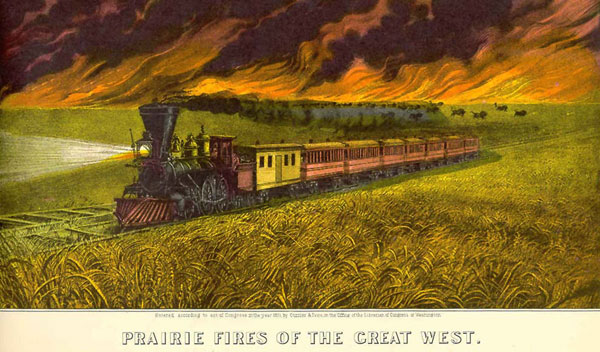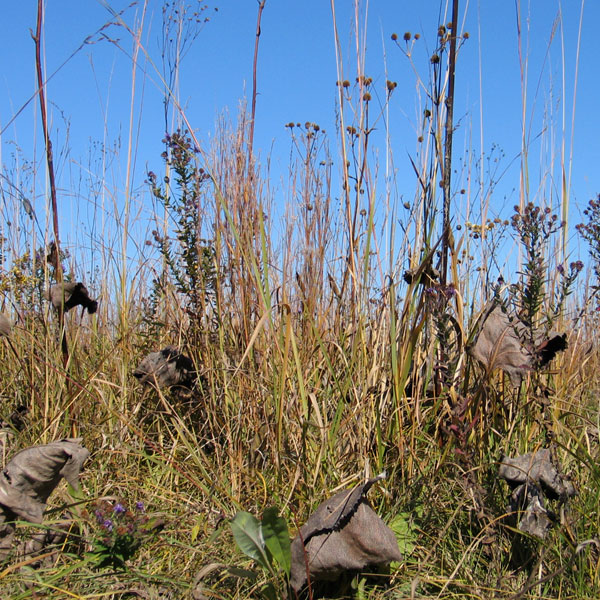
When they reached the western edge of the place we now call Indiana, the forests stopped; ahead lay a thousand miles of the great grass prairie. The Europeans were puzzled by this new environment. Some even called it "the Great Desert." It seemed untillable. The earth was often very wet, and it was covered with centuries of tangled and matted grasses.
With their cast iron plows, the settlers found that the prairie sod could not be cut and the wet earth stuck to their plowshares. Even a team of the best oxen bogged down after a few yards of tugging. The iron plow was a useless tool to farm the prairie soil. The pioneers were stymied for nearly two decades. Their western march was halted and they filled in the eastern regions of the Midwest.

In 1837 a blacksmith in the town of Grand Detour, Illinois, invented a new tool. His name was John Deere, and the tool was a plow made of steel. It was sharp enough to cut through matted grasses and smooth enough to cast off the mud. It was a simple tool, the "sodbuster" which opened the great prairies to agricultural development.
When the European settlers arrived at the Sauk prairie in 1837, the government forced the native Sauk people west of the Mississippi River. The settlers came with John Deere's new invention and used the tool to open the area to a new kind of agriculture. They ignored the traditional ways of the Sauk Indians and used their sodbusting tool for planting wheat.
Initially the soil was generous and the farmers thrived. Each year, however, the soil lost more of its nurturing power. Within thirty years after the Europeans arrived with their new technology, the land was depleted. Wheat farming became uneconomic, and tens of thousands of farmers left Wisconsin seeking new land with sod to bust.
It took the Europeans and their new technology just one generation to make their homeland into a desert. The Sauk Indians, who knew how to sustain themselves on the Sauk prairieland, were banished to another kind of desert called a reservation. And even they forgot about the techniques and tools that had sustained them on the prairie for generations unrecorded.
"John Deere and the Bereavement Counselor" (1985)
John McKnight